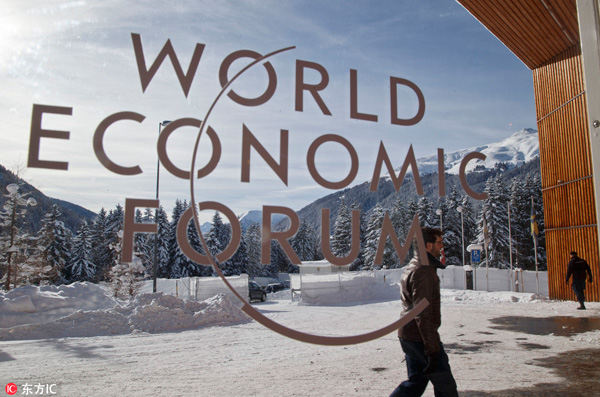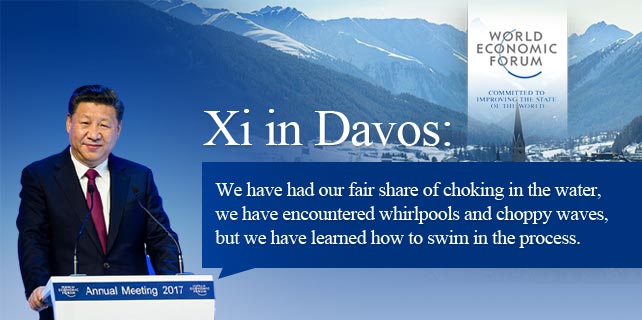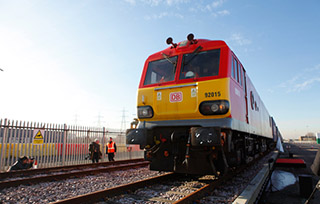Challenges ahead for China's economic vision
 |
|
A man walks at the main entrance of the congress center where the World Economic Forum takes place in Davos, Switzerland, in this file photo taken on Jan 18, 2016. [Photo/IC] |
The 47th World Economic Forum (WEF) held this week in Davos, Switzerland was notable for the statement of intent by Chinese President Xi Jinping.
Xi became the first Chinese leader to address the WEF, laying out his vision for the future of the global economy, and defending globalization from charges that it had benefited some more than others.
American President-elect Donald Trump, on the other hand, made his statement through his silence on the event, instead sending Anthony Scaramucci– a top advisor. At the WEC, Scaramucci continued Trump's hostile posture, warning China that America could fight and win a trade war with the country.
But Xi's speech at the Davos forum was what most international observers had come to watch.
The sight of a leader of a country once largely closed to international trade arguing for the continuation of the process of globalization, and promising to open his country up further to foreign investment contrasted sharply with the absence of leadership by the United States –the country that has most aggressively promoted free trade and "Washington Consensus" policies for developing countries.
Yet explaining to the losers of globalization why they should keep faith with free trade and open markets is a tough sell. How do you explain to a worker in one country why they should lose their job to a worker in a country with lower wages? Vague promises of retraining and financial support aren't likely to cut it.
But it isn't just economic grievances that are challenging the process of globalization. In countries across the world issues such as crime, immigration, political correctness, and nationalism are propelling politicians to power who see globalization as a problem –– not a solution.
Millions of workers in Western countries have seen their jobs move to developing economies. Cheaper imports in the shops of developed countries are useless if many workers can no longer earn the money to buy them.
Trump, along with other leaders who oppose aspects of the global economy, has simplistic solutions to complex problems. Jobs are not simply going to flood back to the United States because Trump commands it. His extensive threats of tariffs, while undoubtedly lending some protection to American industries, will invite retaliatory tariffs by foreign countries.
This new international landscape leaves an opening for China. Through policies such as the country's One Belt and One Road initiative, and by playing a positive and constructive role in global affairs, China can aim to take up the mantle of global economic leadership.
Globalization has benefited millions of people, yet political consent for it is collapsing in some of its key proponents. Yet without dealing with the problems caused by globalization, it will be a shrinking band of countries and politicians that continue to argue for it. And few will be listening.
James Skinner is a contributing editor at China Daily with an MA in International Relations. He has a particular interest in British and American politics, as well as global security issues.
- Xi's Davos visit shows Chinese wisdom, confidence
- Davos : Xi fixe un cap à la mondialisation avec un plan chinois (PAPIER GENERAL)
- Jack Ma bangs the drum for small business at Davos
- Global And Virtual Realities At Davos
- Xi charts globalization course at Davos forum with Chinese plan
- Xi Jinping s'adresse au forum de Davos pour la première fois et veut faire progresser la croissance et la gouvernance mondiales
- Davos extends warmest winter welcome to China's tourists






















